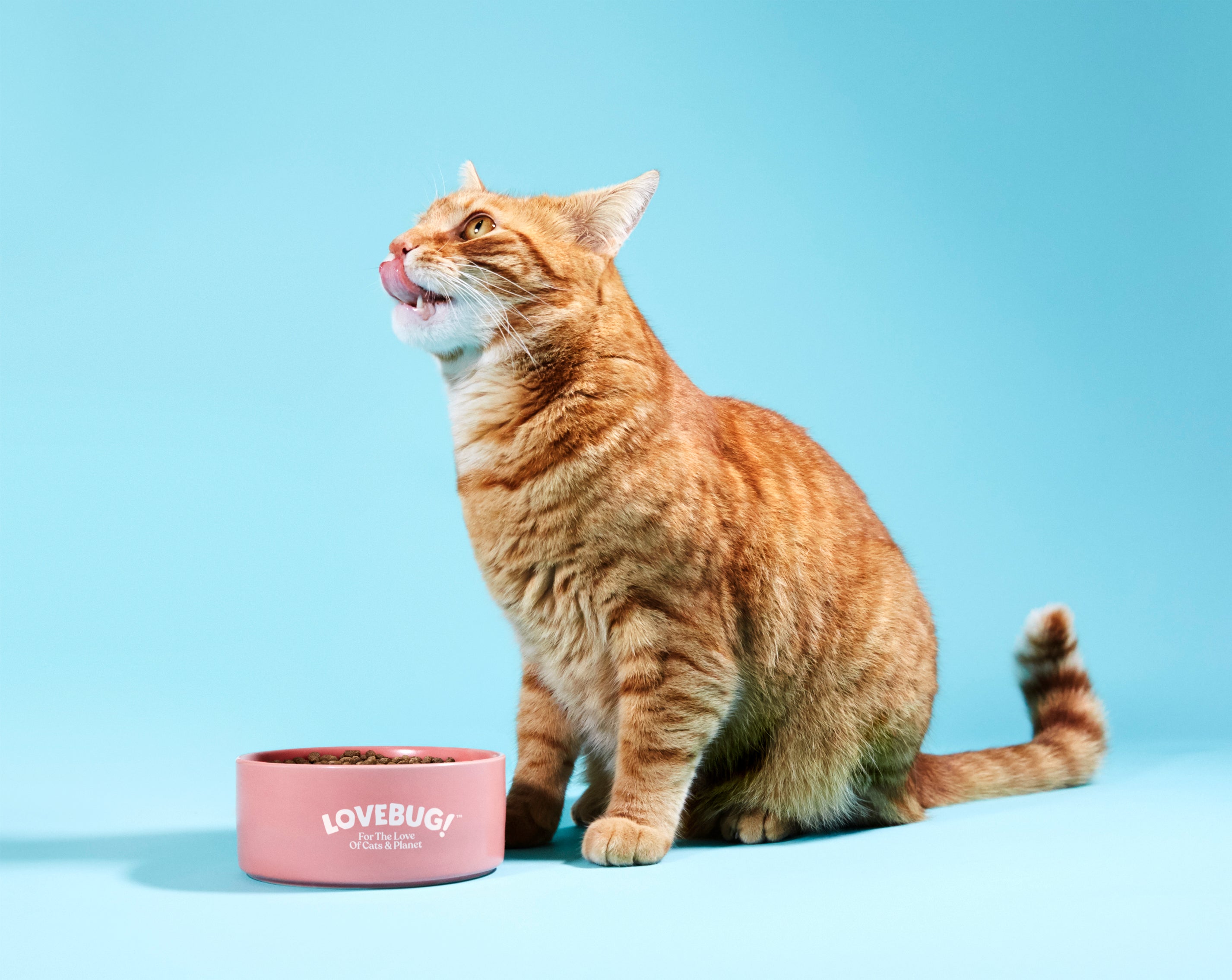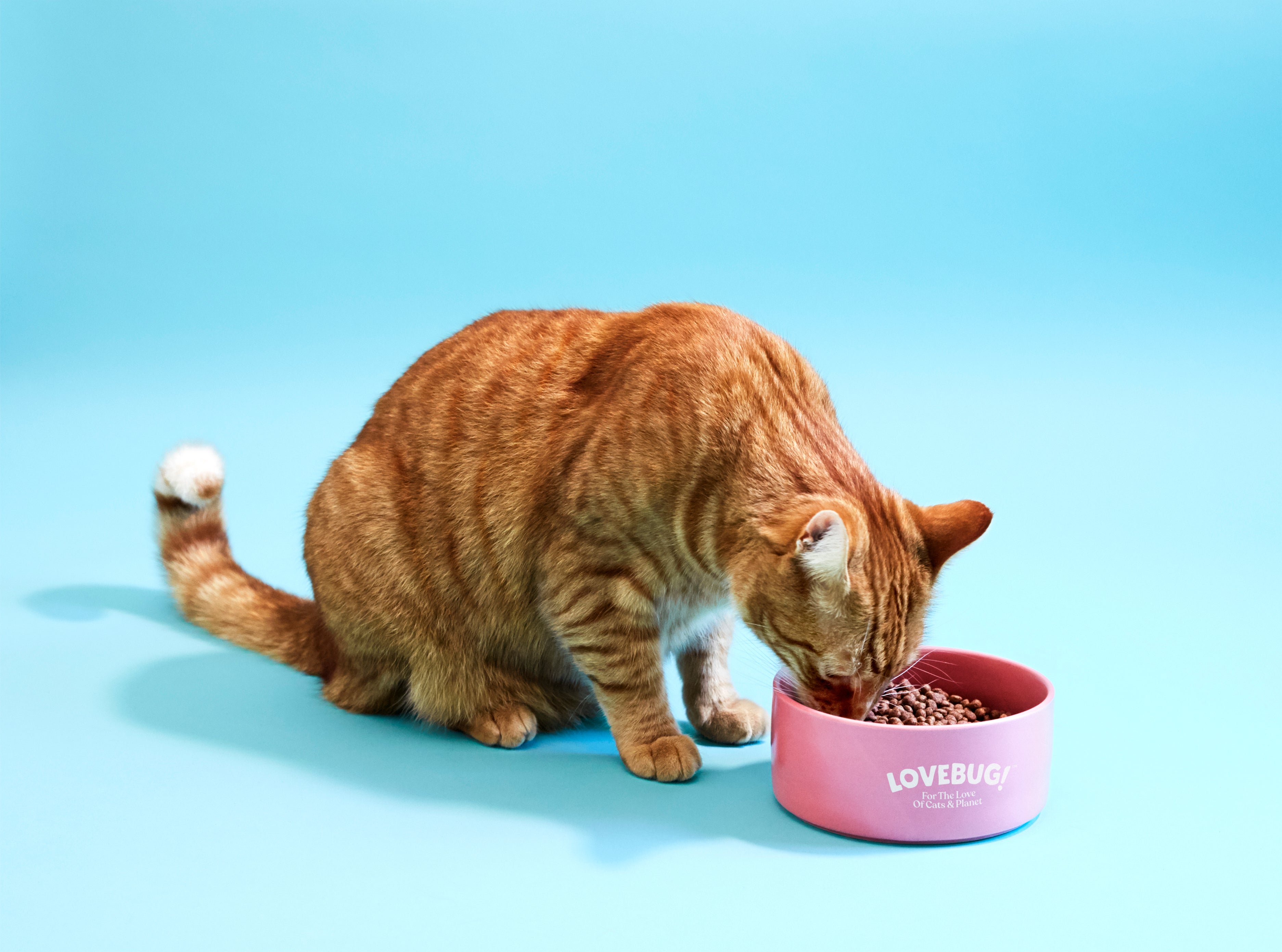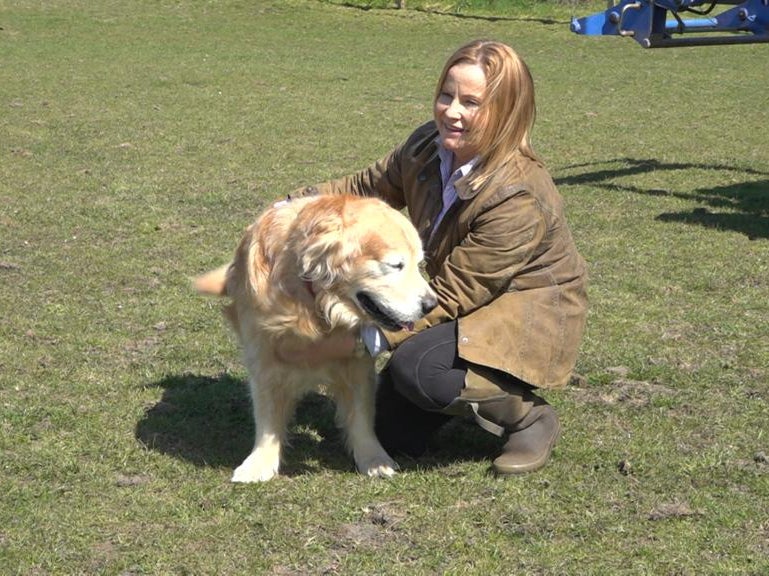How Lovebug and Percuro are using insects to feed pets and help save the planet
Crickets emit 80 times less methane than cows and use much less land. Percuro and Lovebug tell Andy Martin about why they think insects are the future of pet food


There are approximately a billion companion animals prowling the planet, including 20 million cats and dogs in the UK. That’s a lot of petfood with its proportionately huge impact on the environment. Two new companies, Lovebug and Percuro, have turned to insects to solve the problem, and pets are eating it up.
Lovebug is aimed at the feline population. Its founder is Soli (short for Solitaire) Townsend, who owns a tabby cat called Skye and has had cats her whole life. “I’m an obsessive cat person,” she says. “But my sister probably loves cats more than people.” Townsend was one of the first cohort to take a Masters in Sustainable Development at Middlesex University and she went on to set up the Futerra agency to focus on sustainability around the world.
“I’m a climate [conscious] veggie-becoming-vegan,” she says. But her cat wouldn’t be happy with the same plant-based diet because cats are “obligate” carnivores – after thousands of years of Tom and Jerry, they have to eat meat. But insects fit the obligate bill.
Townsend once sampled the delights of insects herself while travelling around Mexico. “I think they were deep-fried crickets,” she says. She changed her own diet to reflect the impact it was likely to have on the planet but started to realise she needed to do the same where her cat was concerned.
“I’ve seen my cats eat lots of insects over the years,” she says. It was a natural to think in terms of insect protein. “But I didn’t want a bag of insects for my cat: I wanted to develop a really quality product.” So several years ago she went to The Waltham Petcare Science Institute, Mars Petcare’s pet research centre. “I was blown away by the science,” she says. Townsend also became more aware of a significant difference between cats and dogs: “The dogs come to you: you have to go to the cats.”
Mars feeds roughly 400 million of the world’s billion pets. Most of its meat is still from cattle but crickets, for instance, emit 80 times less methane than cows, according to a study by the University of Wageningen in the Netherlands and much-reduced land usage. The bug in Lovebug is actually the larva of the black soldier fly, farmed in the Netherlands, which is fed on food waste. But you don’t get a bagful of larvae, you get kibble, easily manageable (for humans) and digestible (for cats).
Mars did years of R&D and finally tested the product for “palatability” on stacks of willing cat influencers. Skye was one of the first cats to sample Lovebug. “It was a tense moment,” says Townsend. “You don’t know until it hits the bowl.” But the reaction was good. “She buried her face in it. It’s a wonderful moment when cats show enthusiasm. You don’t see it that often.”

Another thing about Skye the cat: she hasn’t killed anything since she started eating Lovebug. Which must mean something. “And she has become more loving, I swear,” says Townsend. “She’s still just as crazy though!” Lovebug launched in April and is available online. The packaging is recyclable and plastic-free.
As for Percuro, I need to declare an interest – my dog Waffle is a fan. Denise Saber, the co-founder of Percuro, had dogs growing up – German shepherds and border collies who roamed around the countryside on the shores of Loch Lomond.
She worked in banking for the best part of 30 years and in the latter half of her career, in asset management, she focused on sustainability. “It was once looked at with disdain, in an investment portfolio,” Saber recalls. “They thought it would take away from performance.”
Not any more though. “Finally, fund managers started to sit up and take notice,” she says. Her argument was always: “To do well for clients, but not at the expense of the planet.”
Now she applies the same argument to increase the benefit to people and their companion animals while minimising their climate pawprint. She says: “I don’t eat processed food. I want that to translate into my pets too.” She now has two golden retrievers and she wanted to create a diet for them which would have “life-extending benefits”. That was the beginning of Percuro. She points out that 19 billion animals are slaughtered every year just to feed our pets. That’s 20 per cent of the total meat and fish consumed around the world. “It’s unsustainable. I didn’t want my pets to contribute to that,” she says.

For over six months she worked with her sister on getting the formulation right and they launched in January. Twenty-four per cent is made of insects (those larvae of the black soldier fly again), the rest is plant-based, including camomile, hempseed oil and olive oil. All the ingredients come from no further away than Europe.
She took it to United Pet Foods to test it for palatability and digestibility. They ran a two-bowl test (where the dog gets to choose) for 20 dogs over 5 days. Percuro came out ahead of the competition 92 per cent of the time. “The No 2 at United now feeds his dogs on our food,” says Saber. “And it fixed their skin problem!”
Percuro is looking to do cat food as well. “I’ve been testing the dog food on the cats,” says Saber. “They love it!” And Percuro is bringing out a range of dog treats this year.
Especially during the dark days of the pandemic, companion animals have been a lifeline for many. Percuro and Lovebug show that we don’t have to sacrifice the interests of the planet for the interests of our pets.






Join our commenting forum
Join thought-provoking conversations, follow other Independent readers and see their replies
Comments